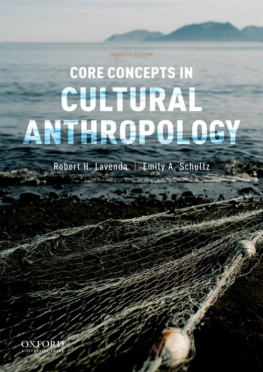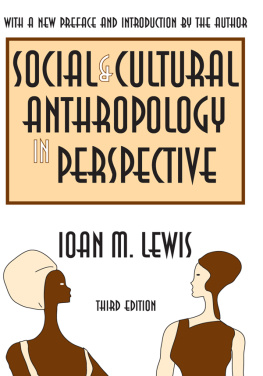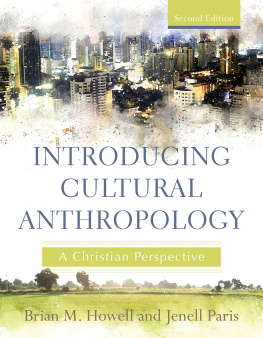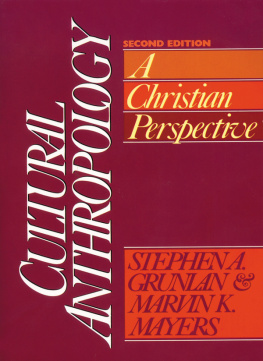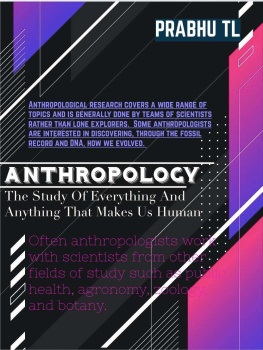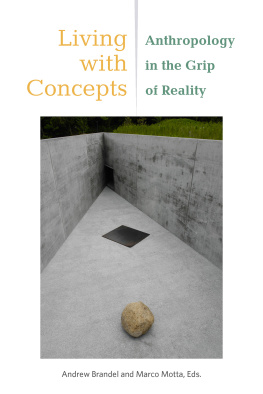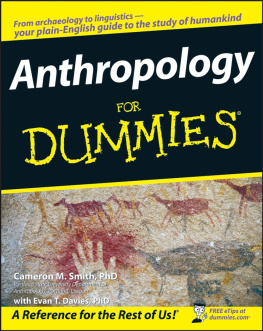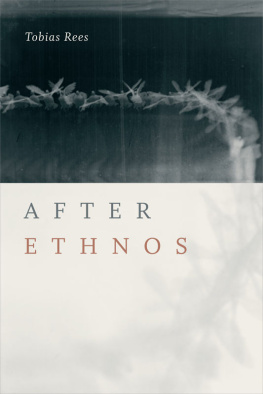Robert H. Lavenda - Core Concepts in Cultural Anthropology
Here you can read online Robert H. Lavenda - Core Concepts in Cultural Anthropology full text of the book (entire story) in english for free. Download pdf and epub, get meaning, cover and reviews about this ebook. year: 2020, publisher: Oxford University Press, genre: Politics. Description of the work, (preface) as well as reviews are available. Best literature library LitArk.com created for fans of good reading and offers a wide selection of genres:
Romance novel
Science fiction
Adventure
Detective
Science
History
Home and family
Prose
Art
Politics
Computer
Non-fiction
Religion
Business
Children
Humor
Choose a favorite category and find really read worthwhile books. Enjoy immersion in the world of imagination, feel the emotions of the characters or learn something new for yourself, make an fascinating discovery.
- Book:Core Concepts in Cultural Anthropology
- Author:
- Publisher:Oxford University Press
- Genre:
- Year:2020
- Rating:5 / 5
- Favourites:Add to favourites
- Your mark:
- 100
- 1
- 2
- 3
- 4
- 5
Core Concepts in Cultural Anthropology: summary, description and annotation
We offer to read an annotation, description, summary or preface (depends on what the author of the book "Core Concepts in Cultural Anthropology" wrote himself). If you haven't found the necessary information about the book — write in the comments, we will try to find it.
Core Concepts in Cultural Anthropology — read online for free the complete book (whole text) full work
Below is the text of the book, divided by pages. System saving the place of the last page read, allows you to conveniently read the book "Core Concepts in Cultural Anthropology" online for free, without having to search again every time where you left off. Put a bookmark, and you can go to the page where you finished reading at any time.
Font size:
Interval:
Bookmark:


Core Concepts
in
Cultural Anthropology

Core Concepts
in
Cultural Anthropology

ROBERT H. LAVENDA
EMILY A. SCHULTZ
SEVENTH EDITION

Oxford University Press is a department of the University of Oxford. It furthers the Universitys objective of excellence in research, scholarship, and education by publishing worldwide. Oxford is a registered trade mark of Oxford University Press in the UK and certain other countries.
Published in the United States of America by Oxford University Press
198 Madison Avenue, New York, NY 10016, United States of America.
2020, 2017, 2007, 2000 by Robert H. Lavenda and Emily A. Schultz;
2013, 2010, 2003 by The McGraw-Hill Companies, Inc.
For titles covered by Section 112 of the US Higher Education Opportunity Act, please visit www.oup.com/us/he for the latest information about pricing and alternate formats.
All rights reserved. No part of this publication may be reproduced, stored in a retrieval system, or transmitted, in any form or by any means, without the prior permission in writing of Oxford University Press, or as expressly permitted by law, by license, or under terms agreed with the appropriate reproduction rights organization. Inquiries concerning reproduction outside the scope of the above should be sent to the Rights Department, Oxford University Press, at the address above.
You must not circulate this work in any other form
and you must impose this same condition on any acquirer.
Library of Congress Cataloging-in-Publication Data
Names: Lavenda, Robert H., author. | Schultz, Emily A. (Emily Ann), 1949- author.
Title: Core concepts in cultural anthropology / Robert H. Lavenda, Emily A. Schultz.
Description: Seventh edition. | New York : Oxford University Press, [2020] | Includes bibliographical references and index.
Identifiers: LCCN 2018060667 (print) | LCCN 2019001018 (ebook) | ISBN 9780190924768 (e-book) | ISBN 9780190924751 (pbk.)
Subjects: LCSH: Ethnology. | Ethnology--Bibliography.
Classification: LCC GN316 (ebook) | LCC GN316 .L39 2020 (print) | DDC 305.8dc23
LC record available at https://lccn.loc.gov/2018060667
9 8 7 6 5 4 3 2 1
Printed by LSC Communications, Inc., United States of America
To Jan Beatty


T his book is a concise introduction to the fundamental key terms and issues of contemporary cultural anthropology. It is not a condensed version of our textbook, Cultural Anthropology: A Perspective on the Human Condition ; this is something different. Our goal is to provide students with a rapid sketch of the basic ideas and practices of cultural anthropology in a style analogous to an expanded glossary. A good glossary supports beginners in a discipline by expanding the analytic vocabulary at their command and situating this new terminology in the theoretical and practical history of the field. So, too, we hope, will this volume: we introduce the core concepts and key terms in cultural anthropology and indicate briefly where they come from and how they are related to one another to provide students with a context for understanding anthropological writing, especially ethnographic writing, when they turn to it. Our expectation is that this text will be used in conjunction with ethnographies and/or collections of readings during the term. For that reason, we have omitted extended ethnographic examples and other kinds of details found in our textbook Cultural Anthropology (and most introductory texts), and we have concentrated on providing a scaffolding on which students can rely as they begin to read more conventional anthropological texts.
Flexibility . This text can be used in many different ways. It can be used by itself as a concise introduction to cultural anthropology when the course time that can be devoted to covering the discipline is limited. It can also be used very successfully in conjunction with other readings, either anthologies or ethnographies or both. Core Concepts in Cultural Anthropology may be assigned at the beginning of the term to go along with introductory lectures and be referred to as needed. Another approach, popular with users of earlier editions of Core Concepts in Cultural Anthropology , is to assign specific chapters to be read along with particular ethnographies or course topics. To accommodate various uses, we have made each chapter as self-contained as possible. Each chapter has numbered section headings to make it easier for students to navigate the text and to give instructors additional flexibility should they wish to assign segments of chapters in novel ways best suited for the organization of their courses. We have included cross references to related topics in other chapters wherever possible. If the order of our chapters does not fit your arrangement of topics in your course, we invite you to rearrange the chapters and sections in any order that works for you . We think our order makes sense, but there are many different ways to arrange a course, and instructors should feel free to assign (or omit) the chapters and sections in whatever way best suits their approach to teaching anthropology.
Brief and affordable . What you have in your hands is an unadorned framework for teaching cultural anthropology. This book was written to be brief and to be affordable. Quite intentionally, there are no photographs, no lavish graphics, no elaborate text boxes, no extended ethnographic examples. A consequence of writing a concise introduction is that many of the details and nuances of the field are left out. We assume that instructors will provide favorite ethnographic examples both in class and in other readings to illustrate the issues they raise in class. It is our hope that the brevity and affordability of this text will allow the assignment of additional course readings and will engender lectures and class discussions that bring back the nuance and subtlety that are a part of every human endeavor, including anthropology, teaching, and learning.
Provides useful study aids . Each chapter opens with a list of key terms discussed in that chapter. Each chapter ends with a list of suggested readings, whichalong with an extensive end-of-book bibliographydirects students to more detailed discussions. The index allows students to quickly find the key terms they need.
Includes a chapter on theory . Because all anthropological writing is theoretically situated, we have included a chapter on theory in cultural anthropology. We think it is important for students to get a sense of how the texts they are reading fit into a broader theoretical context of the discipline. We also think they need some intellectual tools for interpreting what they are reading: ethnographic writing often refers to alternative theoretical positions, and it is useful for students to know the issues those positions have raised in the course of ongoing anthropological discussion and debate.
Next pageFont size:
Interval:
Bookmark:
Similar books «Core Concepts in Cultural Anthropology»
Look at similar books to Core Concepts in Cultural Anthropology. We have selected literature similar in name and meaning in the hope of providing readers with more options to find new, interesting, not yet read works.
Discussion, reviews of the book Core Concepts in Cultural Anthropology and just readers' own opinions. Leave your comments, write what you think about the work, its meaning or the main characters. Specify what exactly you liked and what you didn't like, and why you think so.

